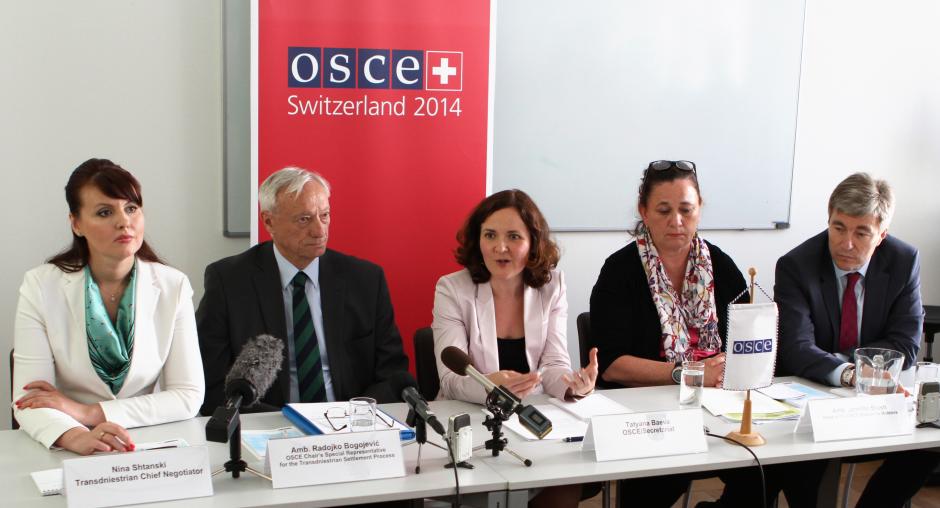Transdniestrian settlement talks sending positive signal, says OSCE Special Representative

VIENNA, 6 June 2014 – The holding of the Transdniestrian settlement negotiations is sending a positive signal, said the Special Representative of the OSCE Chairperson-in-Office for the Transdniestrian Settlement Process Ambassador Radojko Bogojević today.
The second round of the Transdniestrian settlement talks in the 5+2 format that concluded in Vienna today was initially scheduled for 10-11 April, but was later postponed. The 5+2 talks bring together representatives of the sides, as well as of the mediators and observers – Moldova, Transdniestria, the OSCE, the Russian Federation, Ukraine, the US and the EU. For the first time this year, Ukraine was represented in the talks by Andriy Veselovsky, an ex-Deputy Foreign Minister who already held this position in 2006-2008.
“Given the difficult current political and security situation in the region, the holding of these talks with such diverse participation is sending a positive signal about the potential for decreasing tensions in Eastern Europe,” Bogojević said. “It is encouraging that the parties demonstrated a constructive approach and willingness to keep working towards the conflict settlement.”
“We discussed the practical follow-up to the agreements previously reached, I hope that the work to dismantle the Rybnitsa-Rezina cable car is starting soon,” Bogojevic said, specifically welcoming the contribution of the Russian Federation that will be taking the lead in the process.
The industrial cable car crossing the Dniester/Nistru River at the towns of Rybnitsa and Rezina has not been used for more than a decade and poses a threat to the people living beneath it. A protocol decision on dismantling it was signed in Odesa, Ukraine in May 2013.
Bogojević said that the 5+2 discussions focused, among other topics, on ways to solve pressing problems related to ensuring freedom of movement of people, goods and services, the situation of the farmers in the Dubassary region, intensification of co-operation between law-enforcement structures, and the situation regarding the Moldova-administered Latin-script schools in Transdniestria.
This round of talks took place in the premises of the Austrian Foreign Ministry by the kind hospitality of Austrian Federal Minister for European and International Affairs Sebastian Kurz.
Bogojević announced that the next round of the 5+2 negotiations would take place in Vienna on 17-18 July.
Next week, on 10-11 June, representatives of the sides, mediators and observers, as well as the participants of the expert working groups, will take part in the Conference on Confidence-Building Measures in the Transdniestrian Settlement in Freising, Germany. The conference is organized by the OSCE Mission to Moldova with the support of the German Government, and will focus on concrete confidence building measures that can help the Working Groups to better address practical issues related to people’s daily lives on both banks of the Dniester/Nistru River.
